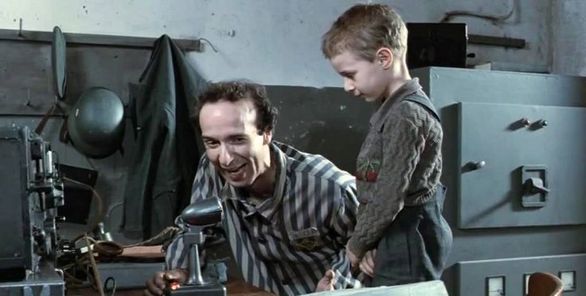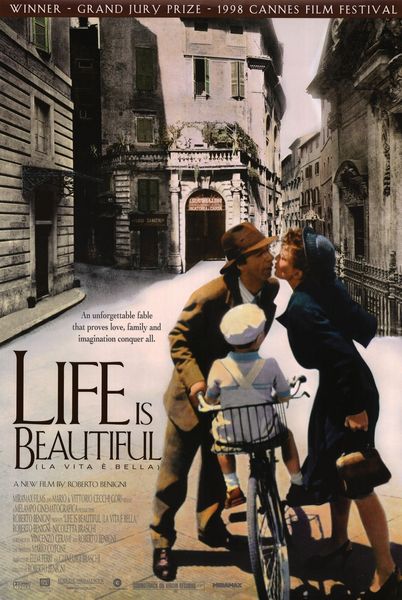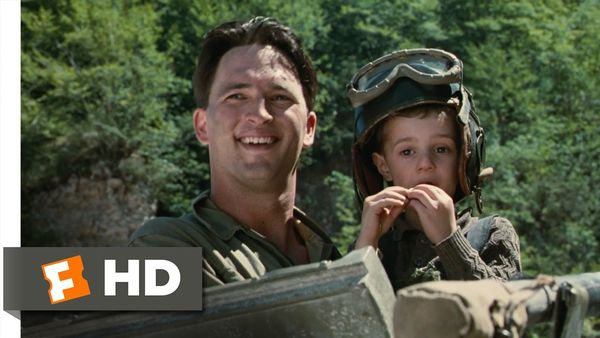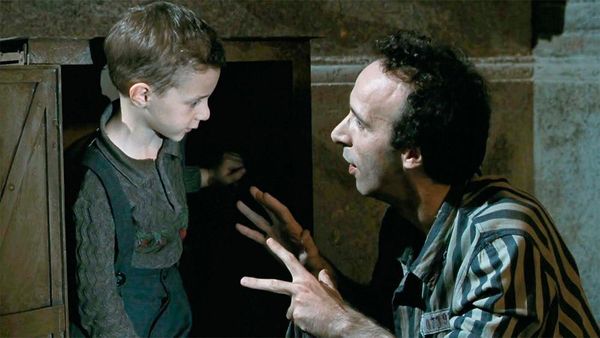Life Is Beautiful (1997)

Suggested videos for you:
Tomorrowland (2015)
ALIEN: ROMULUS The return of space horror xenomorph and is it as good as expected?
“Life Is Beautiful”: A Heartwarming Tale of Love and Resilience Directed by Roberto Benigni

Released in 1997, “Life Is Beautiful” (original title: “La vita è bella”) is a poignant Italian film directed by Roberto Benigni, who also stars in the lead role. This critically acclaimed film masterfully blends elements of comedy and drama, creating a unique narrative that explores the profound impact of love and imagination amid the horrors of World War II. Winning three Academy Awards, including Best Foreign Language Film, “Life Is Beautiful” has left an indelible mark on cinema, celebrated for its emotional depth and innovative storytelling.

The film is set in Italy during the late 1930s and follows the life of Guido Orefice (Roberto Benigni), a charming Jewish bookstore owner with a knack for humor and a zest for life. He falls in love with a beautiful schoolteacher named Dora (Nicoletta Braschi), and they eventually marry and have a son, Giosuè (Giosuè Benigni). Their idyllic life takes a harrowing turn when Guido and Giosuè are captured and sent to a concentration camp, while Dora is also taken away. To shield his son from the grim realities of their situation, Guido uses his imagination and humor to turn their suffering into a game, convincing Giosuè that their time in the camp is merely a contest to win a real tank.

Roberto Benigni’s direction is characterized by a delicate balance between comedy and tragedy. The film opens with a light-hearted tone, filled with whimsical moments that establish Guido’s playful spirit. However, as the story progresses and the setting shifts to the concentration camp, the film delves into darker themes. Benigni’s ability to navigate these emotional transitions is remarkable, allowing audiences to experience both laughter and heartbreak. The cinematography, crafted by Tonino Delli Colli, captures the beauty of Italy alongside the starkness of the camp, enhancing the film’s emotional resonance.

“Life Is Beautiful” is primarily classified as a tragicomedy, but it also incorporates elements of romance and drama. The film explores themes of love, sacrifice, and the resilience of the human spirit in the face of unimaginable adversity. Guido’s unwavering determination to protect his son and maintain hope is a central theme, emphasizing the power of imagination and love as tools for survival. The film poses profound questions about the nature of humanity and the lengths one will go to for the sake of loved ones.
Roberto Benigni delivers a masterful performance as Guido, exuding charm, warmth, and vulnerability. His portrayal is both comedic and deeply touching, making audiences root for him through every challenge. Nicoletta Braschi shines as Dora, embodying the grace and strength of a mother torn from her family. Young Giosuè, played by Benigni’s real-life son, captures the innocence of childhood amid chaos, further amplifying the film’s emotional impact.
Upon its release, “Life Is Beautiful” received widespread acclaim from critics and audiences alike. It was praised for its innovative storytelling and emotional depth, becoming a cultural touchstone that sparked discussions about the Holocaust and the power of hope. The film’s blend of humor and tragedy resonated with viewers, making it a timeless classic.
In conclusion, “Life Is Beautiful” is a remarkable film that intertwines joy and sorrow in a narrative that celebrates the resilience of the human spirit. Directed by Roberto Benigni, the film transcends the horrors of war to deliver a powerful message about love, imagination, and hope. Its unforgettable performances and poignant storytelling ensure that “Life Is Beautiful” remains a cherished masterpiece in the history of cinema, inviting audiences to reflect on the beauty of life, even in the darkest of times.











